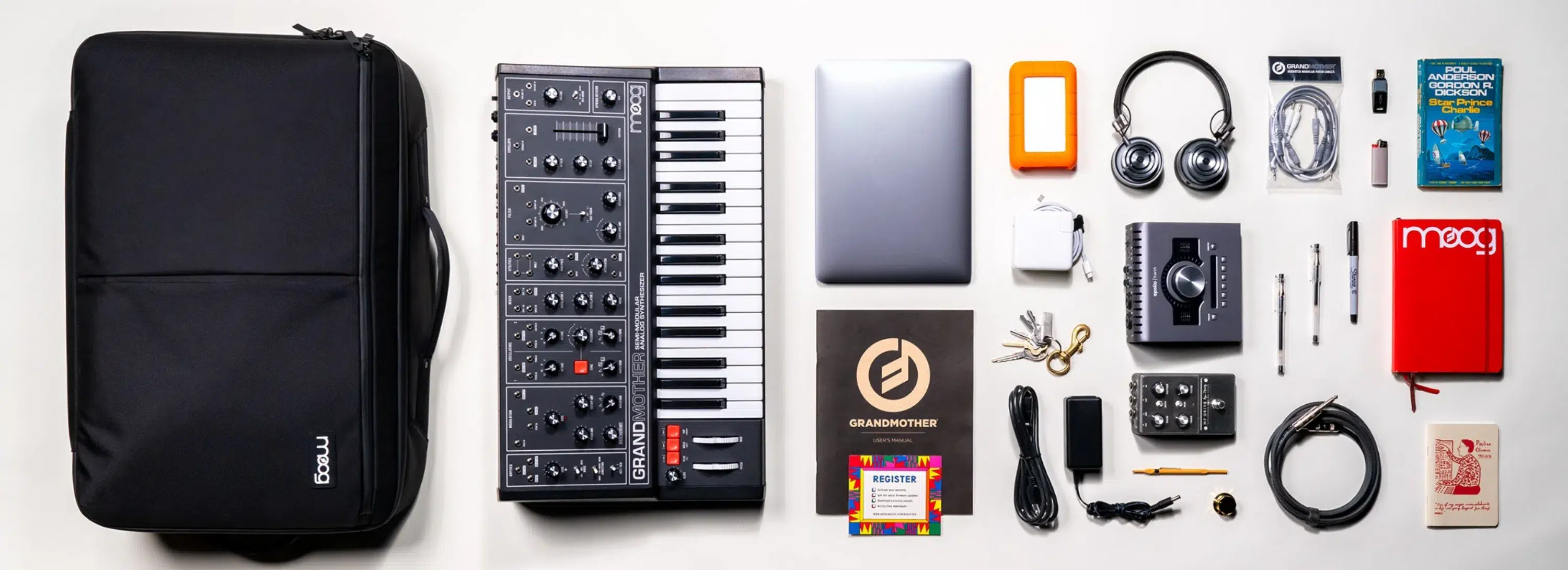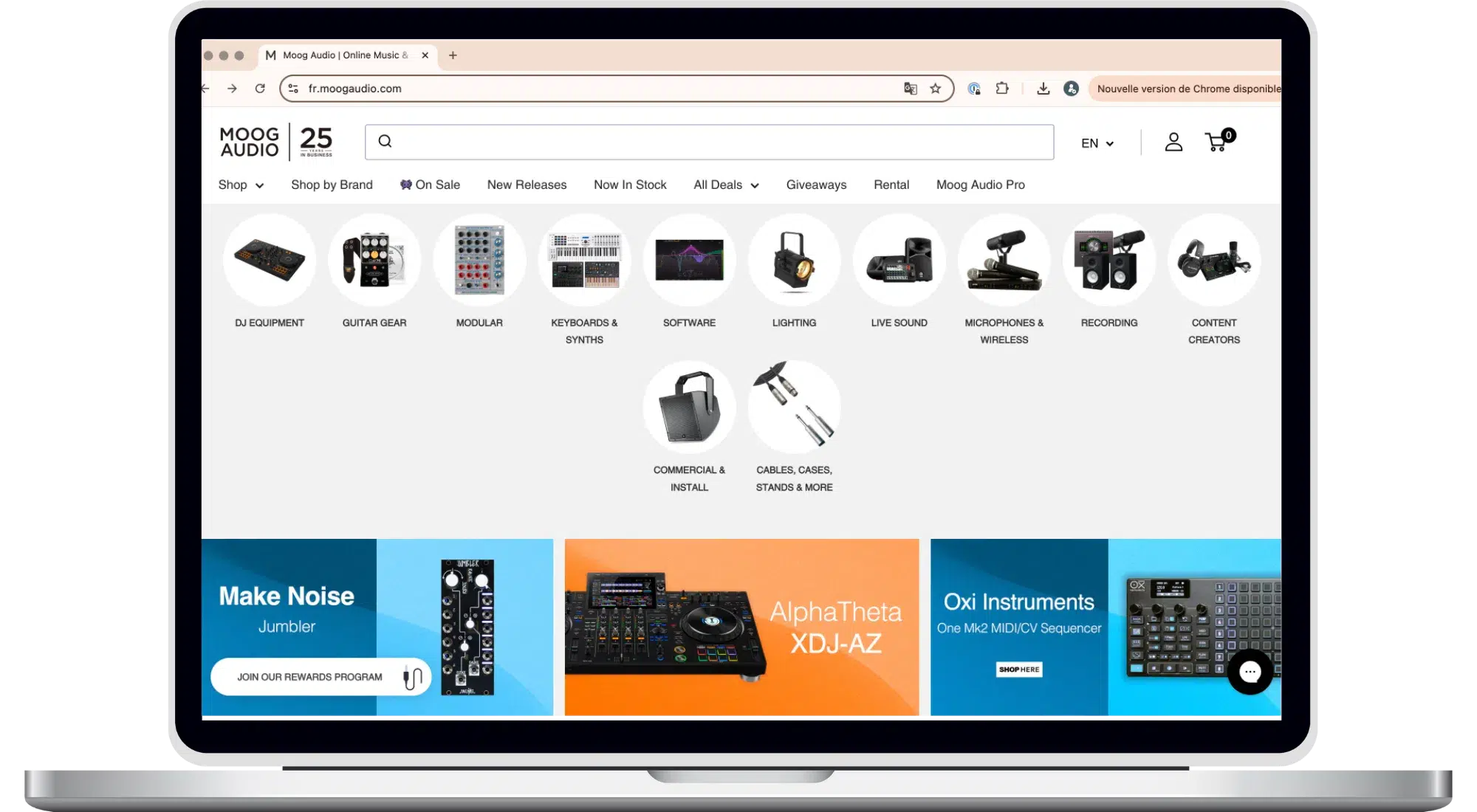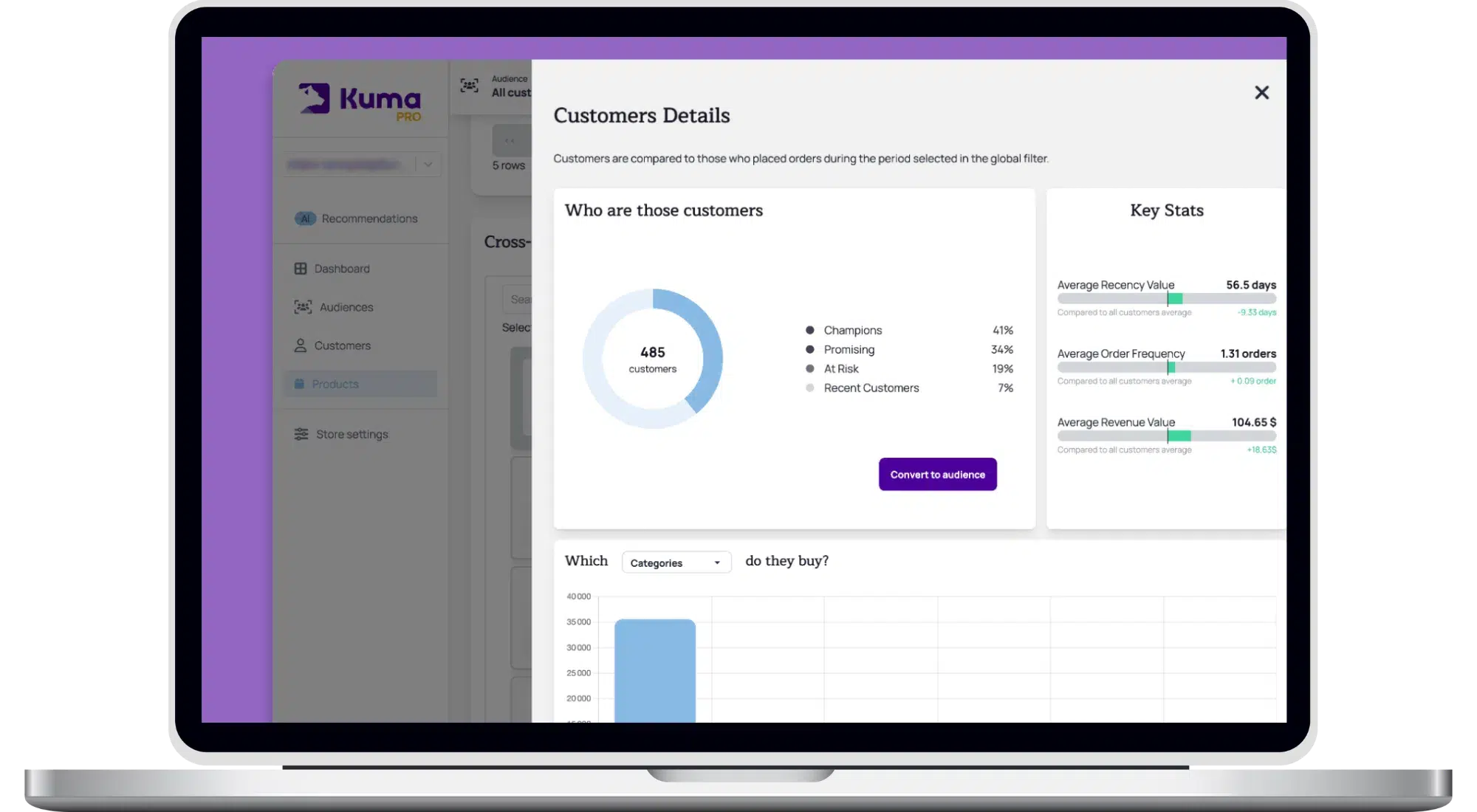How Moog Audio Adopted Kuma to Maximize Ad Efficiency and Profitability
ROAS
Customer Understanding
Targeting Accuracy
Background
Moog Audio, a premier retailer of high-end audio equipment, uses Shopify Plus to serve a diverse customer base including professional musicians, DJs, audio engineers, and home studio enthusiasts. Before integrating Kuma, Moog Audio already employed digital platforms like Meta Ads and Google Ads to promote their products across Canada. Their goal in adopting Kuma was clear: maximize profitability by increasing their return on ad spend (ROAS) and improving the precision of their marketing.
Challenges
Before using Kuma, Moog Audio faced several challenges:
Limited customer insights
Moog Audio relied on GA4, Meta Ads, Google Ads, and Shopify analytics. While useful, these tools provided fragmented insights, requiring time-consuming manual analysis. With a lean team, they needed a smarter, automated solution that could surface strategic insights quickly.
Rising Customer Acquisition Costs
Digital advertising spend has more than doubled since 2019. A 30% jump between 2020 and 2021 alone underscores the growing impact of privacy regulations and shifting technologies on advertising performance. As these changes disrupted traditional targeting methods and reduced campaign efficiency, Moog Audio saw their acquisition costs rise. Every dollar had to work harder to deliver the same results.
Inefficient Audience Targeting
Manually managing customer lists on advertising platforms limited Moog Audio’s ability to personalize offers and messaging. They were targeting broad audiences with little segmentation, missing key conversion opportunities.
Navigating new legislation around customer consent for tracking cookies and the phasing out of third-party cookies
With the rise of privacy-first laws like Quebec’s Law 25 and broader shifts in Canadian regulations, Moog Audio knew they had to act. They wanted to break free from their dependency on ad platform algorithms and move toward a sustainable targeting strategy, one built on first-party data, not cookies. By doing so, they ensured their campaigns would remain effective and compliant, even as the digital advertising landscape continues to evolve.
Our Solutions
Enhanced Customer Insights With AI
Moog Audio leveraged Kuma’s AI-powered chatbot to generate strategic marketing recommendations tailored to their specific audiences. By analyzing customer journeys and behaviors, they identified patterns that led to high-value conversions. This not only deepened their understanding of customer needs but also empowered them to act on those insights in real time, without draining internal resources.
Advanced Audience Segmentation
Kuma’s predictive audience segmentation allowed Moog Audio to build dynamic, behavior-based audiences synced directly with Meta Ads. Unlike static customer lists, these segments adapt in real time to customer actions and preferences, enabling personalized messaging and offers at scale.
Long-lasting Cookieless Targeting
By using only first-party data, Kuma gave Moog Audio a powerful edge. Even as third-party cookies disappear, their ability to target, analyze, and optimize campaigns remains intact. With full data ownership, they no longer depend on shifting platform algorithms or external tracking tools.
Reduced Customer Acquisition Costs Through Higher ROAS
By optimizing ROAS, Kuma enabled Moog Audio to significantly reduce their customer acquisition costs, without increasing ad spend. Campaigns became more efficient, allowing them to reach more qualified customers for less. This performance-driven strategy gave Moog Audio a scalable and sustainable path to growth, making every dollar work harder and deliver greater impact.
Results
Moog Audio achieved strong results using Kuma:
1.98X ROAS
Moog Audio almost doubled its ROAS, significantly boosting its advertising efficiency and profitability.
Enhanced Customer Understanding
Using Kuma, Moog Audio gained deeper insights into customer behavior and preferences.
Improved Targeting
The audiences created using Kuma’s segmentation outperformed those created with the standard options provided by leading digital advertising platforms, even amid the challenges of new consent laws and the phasing out of third-party cookies.





